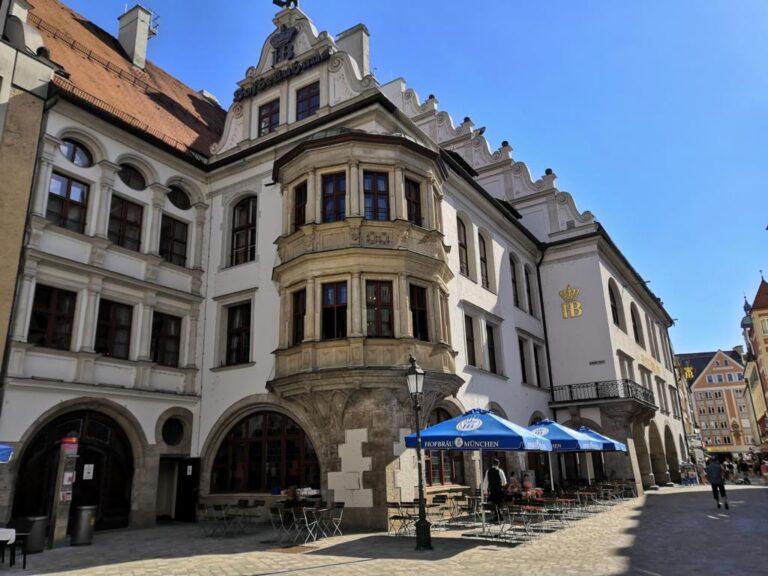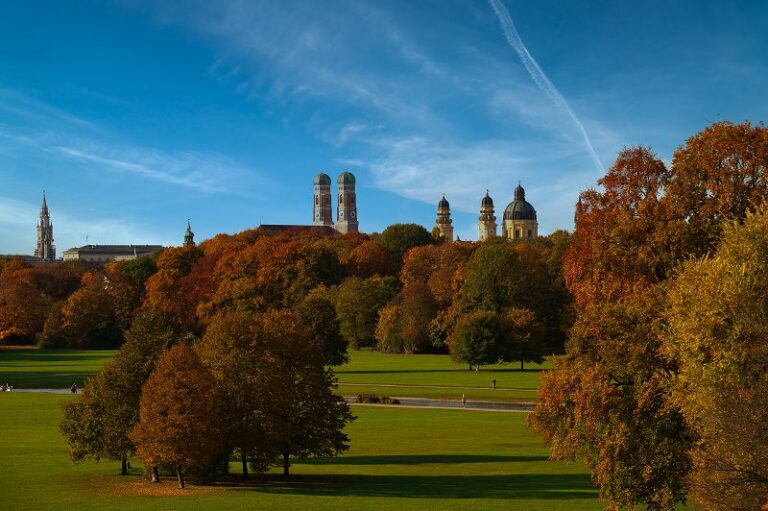Munich is one of the most popular travel destinations in Germany, attracting millions of visitors every year. Most guides and travel blogs highlight the city’s beauty, culture, and traditions – and for good reason. But like any major destination, Munich also has its downsides. Being aware of them helps you set realistic expectations and prepare better for your trip. Here are four things that may disappoint first-time visitors to Munich
1. Crowds Everywhere in High Season
During the summer months, when the weather is perfect for outdoor activities, Munich can feel overwhelmingly full. Finding a free seat in a café in the inner city can be a challenge, and shopping along the main streets like Neuhauser Straße or Sendlinger Straße often feels like training for Oktoberfest. Beer gardens, known for their relaxed “Gemütlichkeit” (coziness), are also packed on sunny days, making it difficult to find a free table. Escaping into the Bavarian countryside doesn’t always solve the problem either. Popular destinations like Garmisch, Füssen, or Tegernsee attract crowds of their own, and late starters often find themselves stuck in long traffic jams heading south. At least the views of the Alps and the foothills provide some consolation.
2. Bavarian Culture Isn’t as Authentic as You Expect
Tourists often arrive in Munich with the expectation of experiencing authentic Bavarian culture everywhere – lederhosen, brass bands, and roast pork in every corner. The reality is more complicated. Much of what you see in Munich today is staged for visitors. Some restaurants exaggerate stereotypes, and it’s not uncommon for staff in dirndl or lederhosen to come from outside Germany and struggle with the local language. The Bavarian dialect itself has largely disappeared from the city. While more than half of Munich’s residents spoke it in the 1950s and 1960s, today only around 1% still do. In fact, since 2009, Bavarian has been listed by UNESCO as an endangered dialect.

3. Aggressive Driving and Road Rage
If you rent a car in Munich, be prepared for a driving culture that can feel aggressive compared to other countries. German drivers are often impatient, quick to honk if you hesitate at a green light, and not shy about flashing headlights or gesturing if your driving doesn’t match their expectations. Combined with busy streets and limited space, driving in Munich can be stressful for visitors used to calmer traffic environments, such as in the US.
4. A Stressed-Out Atmosphere Among Locals
Many visitors notice that Munich residents often appear rushed and stressed. This is not unique to Munich – it’s common in most German cities – but the effect is amplified when the city is crowded. A bump on the street or simply standing in someone’s way can result in irritated looks or unfriendly remarks. While not everyone reacts this way, it’s something that can surprise visitors expecting more relaxed interactions. The busier the city gets, the shorter tempers seem to become.

Conclusion
Munich remains a fantastic destination, full of history, culture, and charm. But like any city, it has its challenges: summer crowds, staged traditions, impatient drivers, and stressed locals. Knowing this in advance allows you to adjust your expectations, travel at the right time, and approach your stay with more patience. With the right mindset, the positives of Munich will still far outweigh the negatives.

